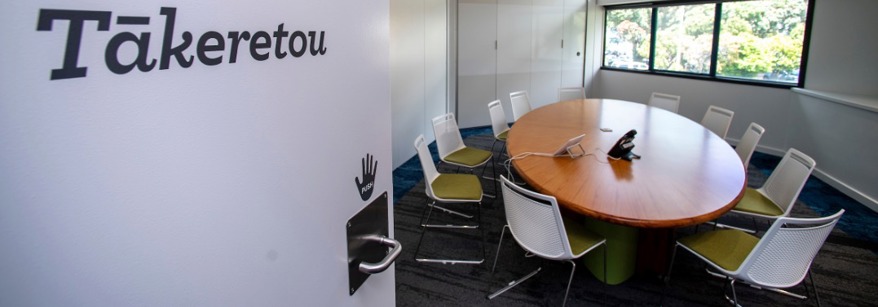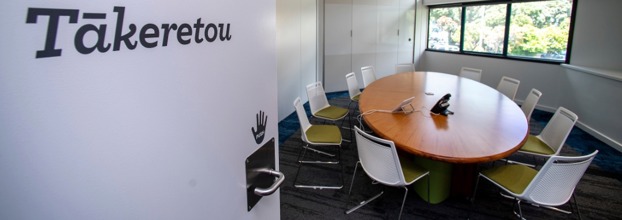

Meeting process
Information on Bay of Plenty Regional Council's meeting process, including standing orders.
Standing orders
Standing orders are the set of rules for how meetings will be conducted. This includes full council, committees, subcommittees and subordinate decision-making bodies, but do not apply to advisory bodies or workshops, unless incorporated in their specific terms of reference.
They enable decision-making to happen in a transparent, inclusive and lawful manner.
All councils must adopt standing orders under the Local Government Act 2002.
For clarity’s sake whenever a question about the interpretation or application of these standing orders is raised, particularly where a matter might not be directly provided for, it is the responsibility of the Chairperson of each meeting to make a ruling. All members of a local authority must abide by standing orders.
Public participation process
Members of the public are welcome to attend all council and committee meetings unless there is reason to consider some items 'in committee'. If you wish to speak at a meeting, please contact the Governance Team to make prior arrangement with Council.
This is part of Standing Orders, and is put on the agenda as Public Forum.
Public Forums
Public forums are a defined period of time, usually at the start of a meeting and the purpose is so that the public can bring matters of interest to the Council’s attention. In the case of a committee or subcommittee, any issue, idea or matter raised in a public forum must also fall within the terms of reference of that meeting.
Time limits
- Up to 15 minutes is available for the public forum. However this can be extended by the Chairperson. Requests must be made to the meeting secretary at least one clear day before the meeting; however this requirement may be waived by the Chairperson.
- Speakers can speak for up to 5 minutes. No more than two speakers can speak on behalf of an organisation during a public forum. Where the number of speakers presenting in the public forum is more than three, the Chairperson has discretion to restrict the speaking time permitted for all presenters.
Restrictions
The Chairperson can decline to hear a speaker or stop a presentation where a speaker is being repetitious, criticising elected members and/or staff, disrespectful or offensive, or the matter is subject to legal proceedings or a hearing, including hearing of submissions, where the local authority or committee sits in a quasi-judicial capacity.
Questions at public forums
After presenting, with the Chairperson’s permission, the speakers may be asked questions by the elected members. These questions are only to gather further information or clarify information that has been raised.
No resolutions
After the public forum, no debate or decisions will be made at the meeting on issues raised during the public forum, unless related to items already on the agenda.
For more information on the Public Participation Process, please contact the Governance Team.
Hearing Induction Loops
The Council Chambers in our Tauranga and Whakatāne Offices have a Hearing Induction Loop for the benefit of meeting attendees with hearing aids or cochlear implants. These Hearing Loops are suitable for both users of T- Coil and Non T- Coil devices. Please note if you have a non T-Coil device you will need to bring along your own earphones/headphones that has a 3.5mm audio jack connector.
If you are attending a meeting and need to use these devices please let reception know upon your arrival.
Agendas and minutes
The Council agenda is a public document although parts of it may be kept confidential – if certain circumstances relating to privileged or commercially sensitive material apply. Minutes of meetings must be kept and made publicly available subject to the provisions of the Local Government Official Information and Meetings Act 1987.
Current Agendas and Minutes are found on the appropriate committee page on this website, or by contacting the Regional Council's Governance Team.
Current agendas and minutes are found on the appropriate committee page on this website.
Council workshops
Workshops are held for in-depth discussion on specific issues. The Council can't make decisions at a workshop, and any matters arising from a workshop must be taken to a later Council meeting for a decision to be made. Public may attend publicly advertised workshops and they are from 1 July 2024 also video recorded and uploaded to the Council's website and YouTube channel.
Notifying meetings
Before the end of each month, the following month's meetings must be publicly notified. Additional meetings can be called with at least five working days’ notice of the time and place of the meeting. Council may also call emergency meetings. Requirements for extraordinary and emergency meetings can be found in Council’s Standing Orders.
Extraordinary meetings may be called at three working days’ notice. Legal requirements for Council meetings are set down in the Local Government Act 2002 and the Local Government Official Information and Meetings Act 1987.
Council's Live Streaming and Recording of Meetings and Workshops Protocols
Council’s Live Streaming and Recording Protocols, amended with effect from 1 July 2024, provide clarity in relation to formal Council and core committee public meetings that are live streamed, and public workshop that are recorded and uploaded on Council's website and YouTube channel.
